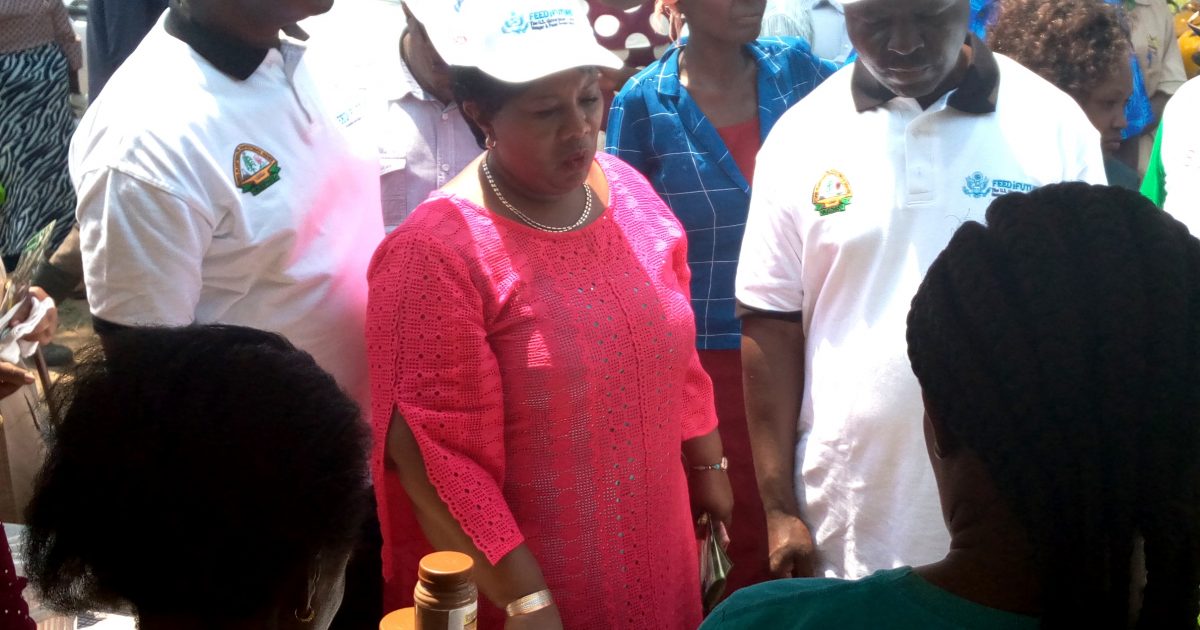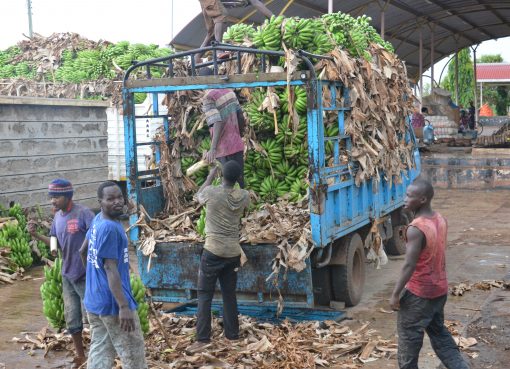
Kenya Plant Health Inspectorate Service (Kephis) is appealing to farmers across the country to use certified seeds to increase yields.
Kephis Managing Director Esther Kimani and Board Chairman Robin Achoki made the appeal at a farmers’ field day at Tabasamu Farm in Nambale Sub County in Busia County on Friday.
The duo, who led a section of Parliament’s Agriculture and Livestock Committee members including Emmanuel Wangwe (Vice Chairman),Florence Mutua and Fred Ouda in a tour of the farm, said it is only through use of certified seeds that farmers will be able to reap highly from their farms.
Kimani said one of Kephis core business is to certify seeds and enforce standards in order to ensure farmers use seed varieties certified and recommended for their particular areas in order to get desired yields.
She noted that: ”Certified seeds are those that have met the minimum national set quality standards after undergoing field inspection, laboratory tests and post control tests by Kephis as per the Seeds and Plant Varieties Act (Cap) 326 of the Laws of Kenya.”
The managing director advised farmers to always report to Kephis about seed merchants who dupe them into buying seeds of low quality that yield poorly or fail to germinate.
She said Kephis has developed a seed sticker label as part of the certification process, where a farmer buying seeds from a merchant scratches the sticker on the packet and texts the written code to the toll number 1393 to confirm its validity.
“By using quality seeds a farmer encounters lesser instances of insect and disease problems as quality seeds respond better to applied fertilizers, and lead to uniformity in plant population and maturity.”
“Certified seeds also prolong the life of a variety, ensure easy yield prediction as well as high produce value and marketability,” she explained.
Kimani urged farmers to join hands and form societies for easy delivery and sell of their farm produce in the markets without falling prey to brokers.
Achoki said their role as a government regulatory agency is to assure the quality of agricultural inputs and produce in order to promote food security and national growth.
He said the agency does this through seed certification by ensuring the farming community gets only the best seed to plant.
“We also engage in plant health services by enabling farmers to manage and contain pests and diseases in their farms.
“Our other role is to assure the quality of agricultural inputs such as soil, water, manure, fertilizers and irrigation water,” he told the gathered farmers.
Achoki also revealed that they have been promoting crops such as potato and avocado which have the potential to uplift the farmers’ standards of living besides sensitizing them to inculcate good agricultural practices and shift to agri-business.
The Navakholo legislator backed the President’s directive that maize imports be sourced strictly from East African Community member states noting that this will allow importation of genuine seeds and grains into the country.
Wangwe said the Agriculture and Livestock Committee is ready to support Kephis in its endeavors to ensure food security is restored in the country.
Mutua who is Busia Women Representative urged Kephis to intensify sensitization activities across the county besides fast tracking and supporting the uplifting of GMO ban especially on BT cotton and high-breed maize.
She said it is only through heightened sensitization that farmers will be able to shift to crops that are suitable for the county’s agro-ecological zones.
“With the realities of climate change dawning on us, where rains are now unpredictable and getting less, we need crops that mature faster and require little water to grow.
“Let Busia farmers go for crop varieties that have been put on trial in this farm-Tabasamu; they grow within a short time, mature early and need little water,” Mutua said while urging Kephis to establish a fully-fledged office in Busia to take care of farmers’ issues.
Busia Agriculture Chief Executive Moses Osiya said a number of crops have been proved to be suitable for the county, hence farmers should embrace commercialized agriculture and current technologies in order to earn more from their farms.
By Melechezedeck Ejakait/Farhiya Moha





